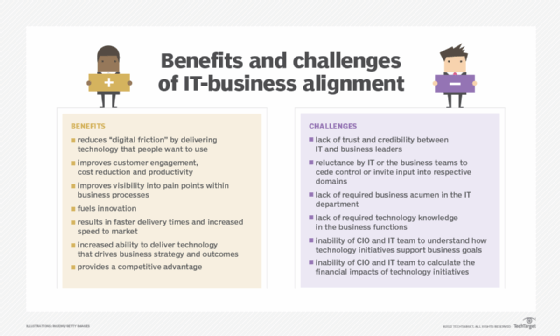
Getty Images
What makes a good IT operations manager?
Making the jump to management can be challenging for IT ops professionals; leadership positions often require a different skill set than technical roles.
A good IT operations manager is a rare individual. Success as an IT ops manager requires a range of capabilities that might not be needed for more technical jobs in IT.
Hopefully, an IT operations manager hasn't gotten their position due to the Peter Principle, where a person is deemed good enough to be promoted until they reach the level just above their capabilities. A good IT ops manager combines the leadership skills to oversee a variety of people, teams and projects with the interpersonal skills to provide input across all levels.
Managing individuals
Managing people is often the hardest part of the job. IT employees come in a lot of different types: shy and reserved but highly capable, brash and sure of skills they don't actually have, and all sorts in between.
IT operations managers must understand when to apply each individual to a particular problem. Therefore, a deep understanding of each person's technical and personal skills is needed. The IT ops manager can gain such insights from observing team members' work and talking with each person.
Good IT ops managers know how to bring out the best in their employees. Rather than just writing someone off when things go wrong, try to understand what happened. Does the employee need extra training? Is it a case of a square peg in a round hole, while there is a square hole in another area?
Keep team members' training and knowledge current, and make sure they understand how their role contributes to the group's overall aims. This helps maintain a happy environment and minimizes the need for the IT ops manager to step in and play hardball.
Managing teams
Together, individual employees form teams, which require a different type of managing. Although teams are composed of individuals, an IT operations manager shouldn't attempt to run their team as nothing more than a collection of individuals.
It is vital that the team recognizes it has a greater aim and all people on the team are bought into that aim. If any aren't, the manager should find and deal with any underlying issues -- or, if necessary, remove the individual from the project to avoid bringing down the team as a whole.
Different teams have different responsibilities. For example, developers and IT ops have different aims, but must work together closely. Meanwhile, to ensure changes don't harm a platform's overall availability and stability, site reliability engineering teams need full visibility into what development and operations are doing. The IT ops manager ensures this all happens with as little friction as possible.
Managing projects
Work carried out by IT teams is usually based around one or more projects. The IT operations manager oversees all the projects assigned to the groups they are responsible for.
However, make sure not to get bogged down in day-to-day project management. This is what the project managers are there for, whereas the IT ops manager ensures that, overall, projects are progressing according to plan. Make sure issues and their root causes are identified rapidly and the right skills are applied to fix the problem.
The skills required at the beginning of any project are different from those needed at the end. For example, people with novel ideas are necessary to get work off the ground. But toward the end, they can be a detriment, as new suggestions in the final stages can derail the project.
IT teams are not static -- an IT ops manager knows when to switch people in and out, working together with the project managers. They also understand how to do this in a manner that does not upset any individual concerned.
Keeping up to date with the IT industry
The tech world is highly dynamic, and IT operations managers must stay up to speed with new developments. In a leadership position, this no longer means knowing the latest patch to Windows Server or a Linux distro; it involves maintaining a working knowledge of different technologies that can help the organization.
An IT ops manager must keep their finger on the pulse of areas such as containers, cloud, data analytics, AI and machine learning. Implementing and managing these technologies should be left to those further down the chain who are responsible for ensuring a chosen tool or approach meets the organization's needs.
Developing communication skills
An IT operations manager must be capable of dealing with the business side. If the business doesn't have a good understanding of IT projects, IT ops will not be fully appreciated, which can lead to poor funding and support. An IT ops manager should be open, honest and capable of talking to the business side in its own language: profits, losses, sales impacts and lack of market reach.

The IT ops manager must also go to bat for their team. If there have been problems, own up to them and take responsibility. Don't blame individuals, unless what went wrong was down to malicious intent.
Finally, identify an existing successful IT ops manager and ask them to serve as a mentor. This can be the best way to ensure you become a good manager yourself rather than an example of the Peter Principle.







